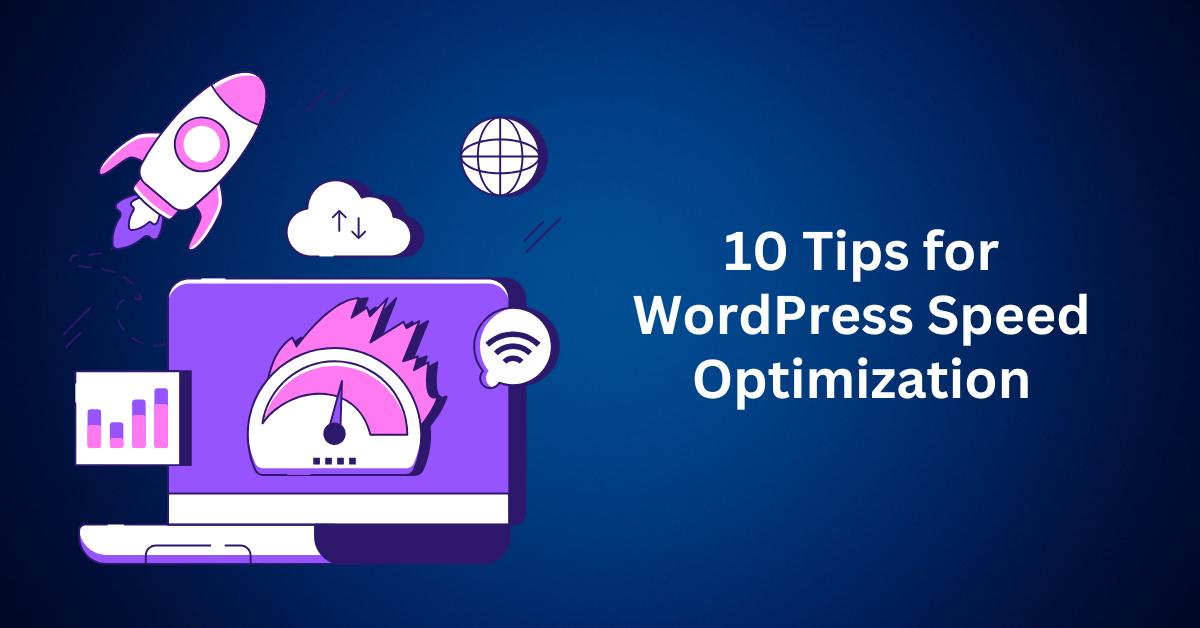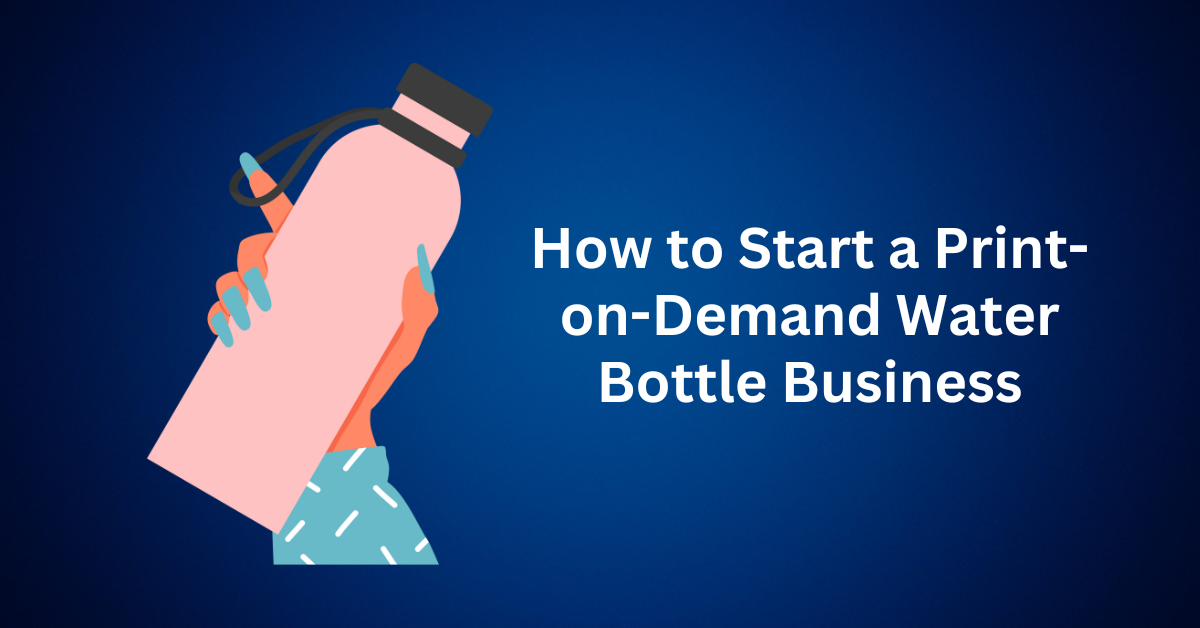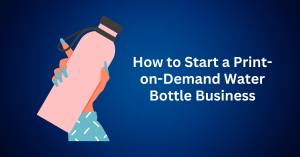Speed is one of the most important metrics for a website. The loading speed for the website will directly affect the visitors’ rate and the user experience of the website. WordPress Speed Optimization is one of the important skills to optimize your WordPress speed to increase your web performance.
Fast-loading pages can improve user experience, increase pageviews, and also help with your WordPress SEO.
Today, we will be sharing the top tips on how to boost WordPress speed and performance for your website.
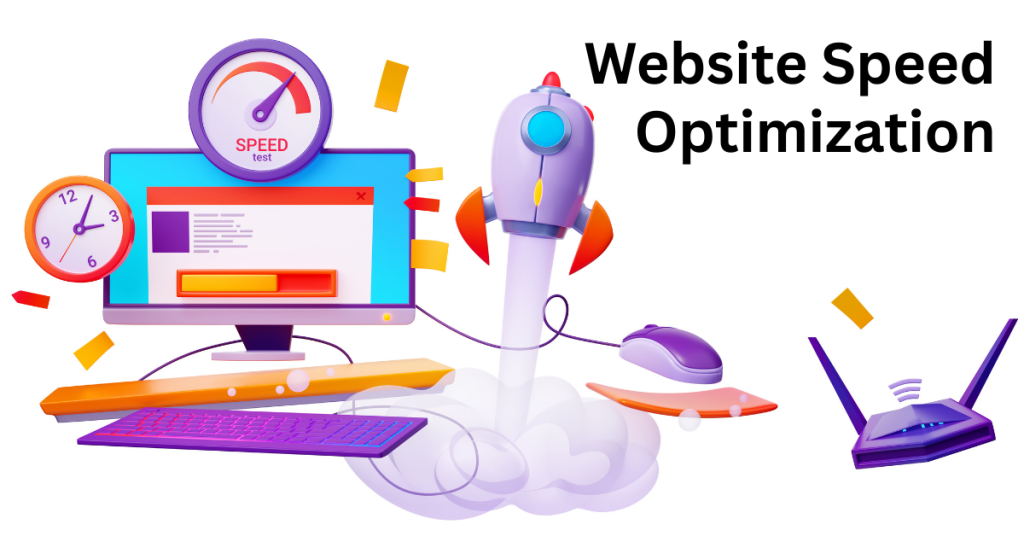
Table of Contents
ToggleWhy Speed Optimization is Important for Your WordPress Site?
Human attention span has been dropping to below 10 seconds in the past few years. This has been worsened by the popularity of social media and short video platforms. People are used to swiping up on things that they don’t like. The decision time is now within 3-5 seconds.
And what this means is if your website content is not loaded within 5 seconds, or even if your content is not able to catch their attention within 5 seconds, they are gone. No matter how good your web design or content, a slow website means users will potentially leave your website before it even loads.
And most search engines will need to provide a good customer experience to their customers as well. This is why, as part of their SEO ranking algorithm, website loading speed is one of the key metrics that they evaluate. And slow websites tend to be pushed down in the search results.
From this, the answer is obvious. You definitely want a fast-loading website to improve your customer experience, page view rate, and revenue.
How to Check Your WordPress Website Speed?
In the online world, data speaks for itself. The personal feeling does not bring much meaning, as your feeling might not be able to represent your entire audience. Your website is the asset that you designed and built. A small issue like a slower loading speed may not affect you much. But what about others?
Further, since it’s your own website, your browsers might store a cache for it. And then, automatically prefetch it as soon as you start typing an address. This makes your website load almost instantly.
What about a new visitor who needs to load everything from scratch?
They might not have the same experience as you. And in fact, not everyone will have the same loading speed. There are many other factors, like network location, speed, and latency, all of which will affect one’s loading speed. This is why you should use a tool to test the real user experience for your visitors.
For this, you can use Pingdom Speed Test, GTmetrix, or even Google Pagespeed Insights to test your website and get the data. After you run your website speed test, you might be wondering what good website speed you should aim for.
A good page load time is under 2 seconds. And of course, the faster it loads, it will be better. A few milliseconds of improvements here and there can add up to shaving off half or even a full second from your load time.
WordPress Speed Optimization with Bluehost Hosting
What Slows Down Your WordPress Website?
With those tools, they are trying to give a complete report to show their competitiveness and the effectiveness of their tools. However, not everything in the report is suitable for you, especially if you are not an IT expert or a WordPress expert.
Learning what slows down your website is the key to improving performance and making smarter long-term decisions.
The primary causes for a slow WordPress website are:
- Web Hosting – When your web hosting server is not properly configured, or it is too far from your target customers. Both these can hurt your website’s speed.
- WordPress Configuration – If your WordPress site doesn’t serve cached pages, it can overload your server and cause your website to slow down or even crash completely.
- Image Size – Image loading is one of the heavy loads that your website takes. And most images used in most websites a high-resolution, heavy files, which are not optimized for the web. You can resize or convert it to a different format, like WebP, to reduce the size and make it load faster.
- Plugins – If you’re using a poorly coded plugin, then it can significantly slow down your website. And if you installed too many plugins, they will drag your website, as well as take longer to load all the plugins on the page.
- External scripts – External scripts, such as ads, font loaders, etc, can also have a huge impact on your website’s performance.
These are some elements that will slow down your WordPress website. Let’s see how you can optimize it to speed up your WordPress website.
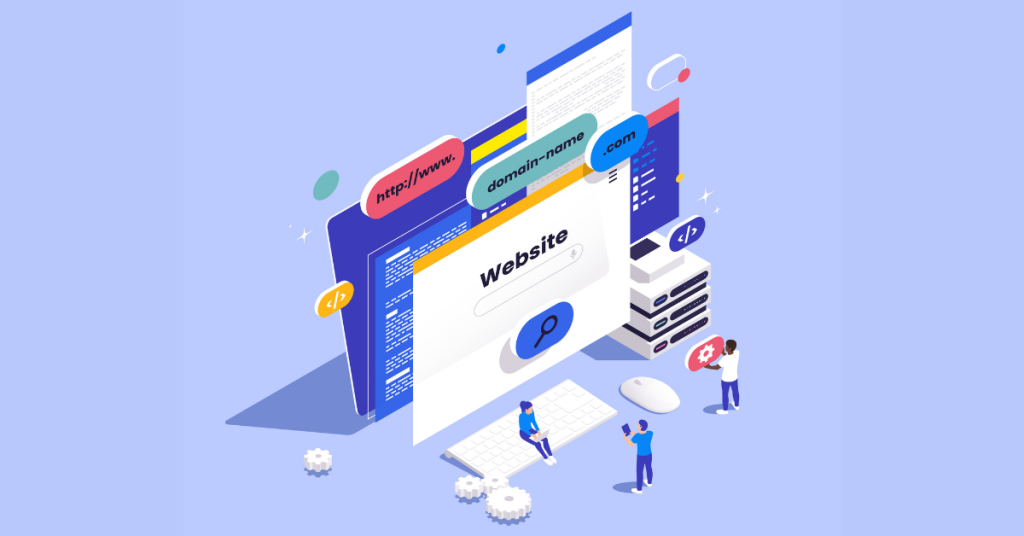
1. Web Hosting – WordPress Speed Optimization
As WordPress is a self-hosted website builder, you will need to get your own web hosting service to host your website. This is where most websites are different. There are so many WordPress web hosting service providers out there. Choosing a good hosting provider is crucial.
First, there are different web hosting plans out there. If you are using a dedicated server or a VPS service, most probably you won’t have resources like a shared hosting plan. For shared hosting, you are sharing the server resources with other customers. This means, if other sites sharing the same resources are getting a lot of traffic, it can affect the performance of all other servers on the same server.
This is why you should get a good hosting provider if you are using shared hosting. A good shared hosting provider like Bluehost or Siteground understands the risk and takes extra measures to optimize your website’s performance.
2. Install a WordPress Caching Plugin – WordPress Speed Optimization
There are many elements in a WordPress page. When someone visits a page or a post, WordPress will load different elements and group them into the page to display to the users.
This process involves a lot of steps, and it can really slow down your website when you have multiple people visiting it at once.
This is why caching is important for a WordPress website. Caching can improve the WordPress website speed by 2-5x.
With a caching plugin, instead of going through the whole page generation process every time, it will make a copy of the page after the first load, and then serve that cached version to other users.
To illustrate it, when a user visits your WordPress website, your server retrieves information from a MySQL database and your PHP files. It then puts it all together into HTML content, which is served to the user. It’s a lengthy process to perform every time if you don’t have caching in place.
To implement caching, you can install the WP Rocket or WP Super Cache plugin from the Plugin Store. Click Plugin >> Add Plugin and search for the cache.
3. Optimize Images for Speed – WordPress Speed Optimization
Images play an important role in making your website look attractive. Colorful visuals encourage visitors to keep reading your content. However, large images take time to load, and if they aren’t optimized, they will slow down your website—a common issue many website owners face.
They didn’t realise the importance of image optimization. There are two things that you should be concerned about here. One will be the naming of the image file; having a relevant name will make it easier for the search engine to know about the image.
Another one will be optimizing the image. This includes having the right image format and compression to reduce the image size. We normally use JPEG and PNG formats for our websites.
PNG image format is uncompressed. When you compress it, it loses some information, image quality, and detail. JPEG, on the other hand, is a compressed file format that slightly reduces image quality but significantly reduces file size.
4. Keep Your WordPress Site Updated – WordPress Speed Optimization
Every piece of software needs to be updated regularly to implement new features and also to fix security issues and bugs. The same goes for WordPress, its themes, and plugins. There are reasons for the upgrades for your website to work smoothly without any threats.
Updating WordPress is different from updating your other devices; updating to the latest version will fix bugs and issues and increase its stability. Not doing so will make your website vulnerable to security threats.
5. Optimize Background Processes – WordPress Speed Optimization
Background processes are scheduled tasks that run in the background of your WordPress website. When there are a few background processes running, it will affect your website’s loading time as it will be using the resources.
For those required ones, like crawling or backup, you can schedule them to perform at a different time to save your resources. Otherwise, you can also schedule them to perform during low traffic times to avoid interrupting your visitors.
6. Use Excerpts on pages – WordPress Speed Optimization
When there is more information or content to be loaded on a page, it will take more time for it to load. This is why, unless for the blog post page or another single page that requires loading the entire piece of content, you should show the summary only.
This includes your homepage, categories, tags, and other archives. Showing excerpts on the general page only will give them chances to act and be taken to the full post page to read more.
7. Split Comments into Pages – WordPress Speed Optimization
Is nice to get lots of feedback and comments on your blog posts. But if it does affect your website performance, I bet you should do something to limit that.
Thanks to this feature in WordPress, where you can break the comments into different pages, you only load the top few comments on your page. This will eliminate the need to load everything on a page, making it a very long page.
Simply go to Settings, Discussion, and check the box next to the “Break comments into pages” option.
8. Use a Content Delivery Network (CDN)
Your web hosting server might be in your location, but your audience might be coming from everywhere in the world. Due to their distance from your web hosting server, they might experience different loading times.
For example, let’s say your web hosting company has its servers in the United States. A visitor who’s also in the United States will generally see faster loading times than a visitor in Singapore.
There are various reasons for this. It can be due to the physical distance, network load, or connection method. All these can affect the network latency and connection speed to your server. Hence, you should use a Content Delivery Network (CDN) to speed up loading times for all of your visitors.
A CDN (Content Delivery Network) is a geographically distributed network of servers designed to deliver website content—such as images, videos, and other files—more quickly and efficiently. By doing so, a CDN helps speed up page load times and reduce server load by caching static assets and serving them from the server closest to the user. As a result, it can significantly improve the user experience while also supporting better search engine optimization.
You can start with Cloudflare for the CDN. It is free to start and works well with WordPress websites.
9. Leverage Other Video Platforms
While the WordPress site supports direct upload of videos, you should not do it.
This is because if you store everything on your web hosting, there will be bandwidth and resource issues when you need to load it every time. Even for some web hosting service that offers unlimited hosting, it’s actually based on a fair usage policy.
If you use too much bandwidth, your site might slow down or even temporarily shut down. To avoid this, host your videos on platforms like YouTube or Vimeo and embed them on your site instead.
You can upload and make it private if you don’t want people to view it there. But there is no harm in putting it public. More views are always better.
Then, you can embed the video link to your website and let it play from the link directly.
10. Select a Fast Loading Theme & Plugin
A theme controls the appearance of your website. When choosing one, make sure it’s lightweight and optimized for speed. One theme we like—and the one we use on this website—is Astra. Astra is designed to be lightweight and SEO-friendly, and it also comes with starter templates you can import directly into your site.
Always keep it simple. A fast-loading website matters more than a beautiful but complicated one that loads slowly.
Apart from the theme, another heavy load on your website is the plugin. WordPress has the basic feature + plugin structure to avoid heavily loaded websites. And you shouldn’t end up installing too much of plugins and slow down your website.
There are a few useful plugins, like contact forms, SEO, analytics, and the Cache plugin, that you should have. And if you are doing eCommerce, you can install the WooCommerce plugin. The rest you should only install when you really need it.
Final Thoughts – 10 Tips for WordPress Speed Optimization
A fast-loading website is always valuable for improving both user experience and pageviews. Fortunately, there are many techniques you can implement on your WordPress site to optimize speed and performance. So, go ahead and try out the strategies shared above, and then compare the results to see the difference.

